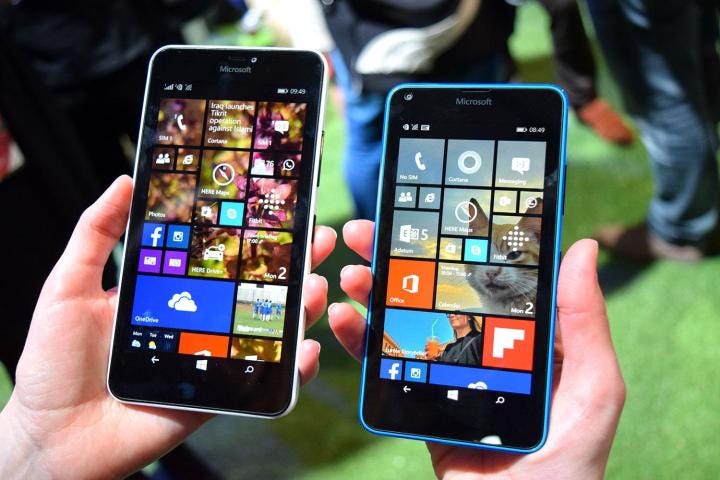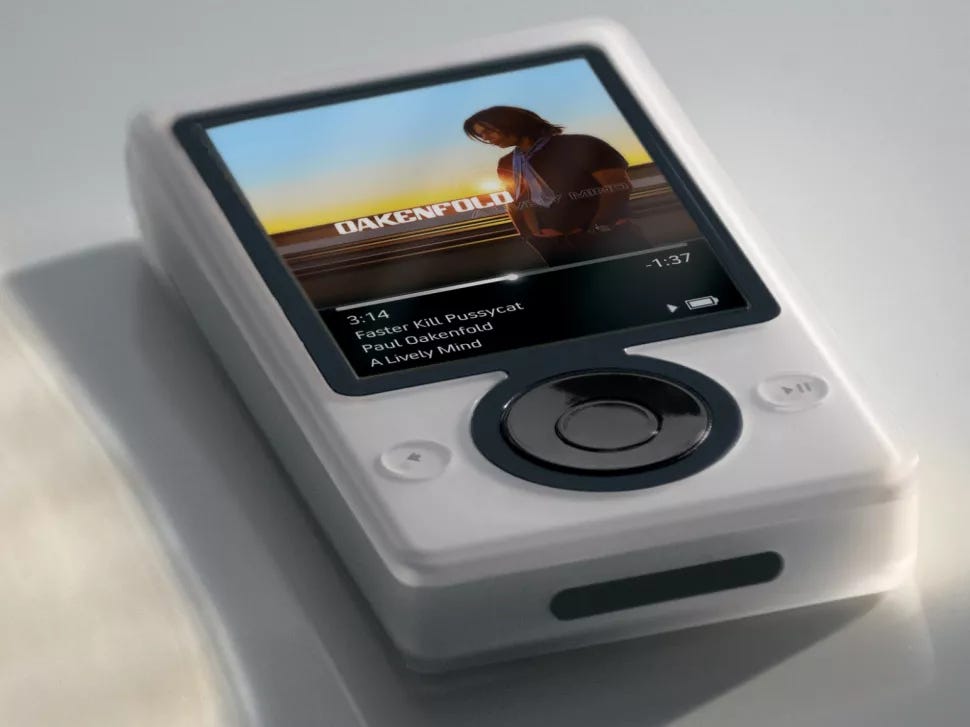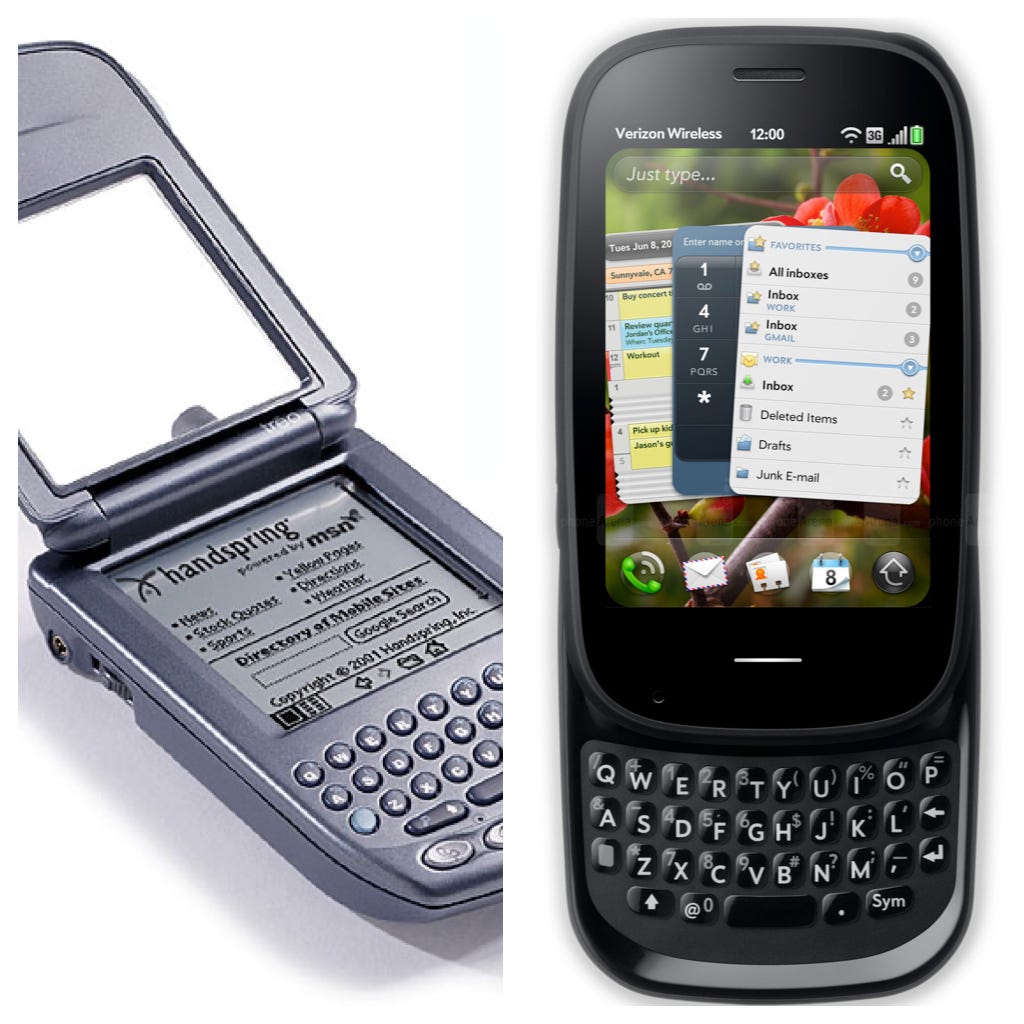Better Products Often Fail
and we’re all worse off for it
BeOS, OS/2, DRDOS, WordStar, the G4 Cube, Zune, Palm phones, and Windows Phone were amazing products. These were amazing products that were, at the time, superior to their competition.
BeOS was better than Macintosh’s OS, and it was better than OS X. BeOS failed because of the developer tools offered by NEXT/OS X, and the fact that Steve Jobs went back to Apple and bought NEXT.
DRDOS was better than MSDOS. DRDOS failed because of Windows 3. No one cared what DOS was under the hood once Windows 3 loaded. This is expected. Windows 3 was absolutely amazing. It is made more amazing by virtue of being useful even on an 8088. Microsoft, love them or hate them, did some amazing work. This doesn’t diminish Digital Research’s DRDOS. DRDOS was amazing. DRDOS didn’t need to die.
WordStar died for a variety of reasons not at all dissimilar to Visi-On. It was a market leader that pioneered many different technologies and usage paradigms, but ultimately was superseded by competitors who were more innovative. The sadness is that very particular features and use cases are often overlooked by the faster moving cohort of development companies.
The G4 Cube was a masterpiece. Apple made a computer that was powerful, easily serviced, easily upgraded, provided a visually beautiful form, and the kind of thoughtfulness and convenience that Apple is now well known for… it was just pricey and USB and FireWire were not common. It’s amusing to me that Apple pushed USB-C with non-user-serviceable and non-user-upgradable hardware and had no such failure. The failure of this machine makes the direction of all of Apple’s later machines quite obvious, but it is sad that this died.
The Zune. This thing died only due to timing. It had great audio quality, supported more file formats than MiniDisc or iPod, and it’s UI design was great. Unfortunately, it came out after Apple captured people with iPod and iTunes, and right before the smart phone revolution. The failure of Zune presaged one of Microsoft worst failures.
The smartphone was not invented by Apple. It was invented by a few companies and much earlier than Apple’s iPhone. There was General Magic, there was Blackberry, and there was Palm. The Palm Treo 180 launched in 2002 and coupled phone and SMS with the classic PalmOS, the personal-information-manager-centric OS. Palm’s PIM capabilities were honestly top-notch. Palm iterated on the design of the Treo line, and provided the market with a very competent smartphone. Later webOS brought Linux on a phone with a bash terminal (no need for rooting or jailbreaking), and a very very slick user interface (pieces of which were copied by competitors).
The last product I want to talk about today is the Windows Phone. This is actually the one who’s memory prompted this article. Windows Phone was quite possible the best mobile OS I have ever encountered. The UI was perfectly tailored for two things: touch, small screens. I wouldn’t normally associate Microsoft with super polished UIs. I associate Microsoft with getting stuff done. I may not always love Microsoft products, but Microsoft makes incredibly powerful, productive, and useful stuff. The Windows Phone delivered a stunningly gorgeous phone OS to the market. The typography focused interface was minimal but beautiful. It also provided exactly what was needed for an on-the-go experience. The tiles on the main screen were large enough to be tapped without much thought, and customizable to suit user preference. The OS also ran very well on very modest hardware. The Windows Phone is the OS that ought to have won the mobile OS wars. As much as I loved both iterations of Palm, as much as I loved the iPhone, the Windows Phone was just better. Why did it fail? Just like the Zune, it was all about timing. By the time Windows Phone had entered the fray, the market was captured by Android and iOS. With people having had large investments into these ecosystems there was a definite cost associated with trying to exit those ecosystems. There was one other thing…

By the time the Windows Phone launched, Windows did not have the best reputation. All of the tech press was extolling the virtues of Apple’s ecosystem. Google and Amazon had become the new tech giants. Microsoft’s developer tools were no longer regarded as the best. In short, Microsoft was viewed as being old, being inefficient, and being tired. These weren’t fair perceptions either. Windows ran great when not bundled with OEM garbage, when not riddled with malware, and when a user was willing to actually close applications that were not in use. On the phone, Windows ran better than iOS on iPhones and that is no small thing! Yet, XP’s long tenure and the typical association with aging crappy Dell midtowers, Vista’s disastrous reception (also undeserved), Windows 8’s disastrous reception (only mildly deserved), and the relatively bad press surrounding update issues with Windows 10… all of this tarnished the brand. It’s sad because Visual Studio was better than Xcode, and Windows Phone crushed all competition.
When you build a better mouse trap, the world doesn’t necessarily beat a path to your door. Apparently, you need the best marketing, good market timing, and good press.







Man did this strike a nerve....I always try to explain to clients that "we have the best product" does not immediately grant them world domination. And the other corollary to this is the "first mover advantage" which often is not. First joke I ever heard in Silicon Valley was, "you can always tell the pioneers in Silicon Valley by the arrows in their backs."
Windows Phone died, IMO, because they made a bad bet after WinPhone 6; the dev team spent an entire dev cycle trying to build the OS out of C#, always hoping that the perf would come "later"; when it came time to ship, the perf wasn't there, and they had to ship WinPhone 6.5, which didn't have the tech innovation to match Apple & Google, and the app builders noticed.
The lack of apps *really* put the nails in the coffin.
WinPhone 7 & 8 also suffered greatly from trying to have a unified code base with desktop Windows.
Still and all, WinPhone was my favorite phone OS, and I was very sad to see it go.
If you still have a Lumia 950 or 950XL, you can install full Windows on it:
https://github.com/WOA-Project/WOA-Deployer-Lumia